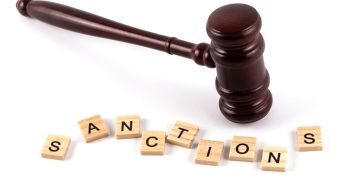operators should prove their ability to cover damages
 Parliament gave its green light on Tuesday to the new directive on the safety of offshore oil and gas operations. The new rules will require oil and gas firms to prove their ability to cover potential liabilities deriving from their operations and to submit major hazard reports and emergency response plans before operations can start.
Parliament gave its green light on Tuesday to the new directive on the safety of offshore oil and gas operations. The new rules will require oil and gas firms to prove their ability to cover potential liabilities deriving from their operations and to submit major hazard reports and emergency response plans before operations can start.
“We need more important standards when it comes to risk management. We believe that the rules we are currently coming up with can be used as a template at international level,” said Ivo Belet (EPP, BE), who steered the legislation through Parliament that was adopted today by 572 votes to 103, with 13 abstentions. Referring to the Arctic, Mr. Belet noted that “the EU has no territorial waters in the North Pole area so it’s difficult for us to envisage a moratorium on gas and oil exploration in this area.”
Financial ability to remedy all damage caused
All operators will need to ensure they have access to “sufficient physical, human and financial resources to minimise and rectify the impact of a major accident”. No licence will be granted unless the applicant has provided evidence that “adequate provision has been or will be made to cover liabilities potentially deriving from its offshore oil and gas operations”.
Major hazards report
Drilling companies will be required to submit to the national authorities, before starting operations, a special report, describing the drilling installation, potential major hazards and special arrangements to protect workers.
Emergency response plans
Companies will also have to provide an internal emergency plan, giving a full description of the equipment and resources available, action to be taken in the event of an accident and all arrangements made to limit risks and give the authorities early warning.
At the same time, EU member states will have to prepare external emergency response plans covering all offshore drilling installations within their jurisdiction. These plans will specify the role and financial obligations of drilling companies as well as the roles of relevant authorities and emergency response teams.
Arctic
MEPs acknowledge the Arctic waters’ important role in mitigating climate change and the need to ensure environmental protection of the Arctic and they encourage member states who are members of the Arctic Council “to actively promote the highest standards with regard to environmental safety in this vulnerable and unique ecosystem, such as through the creation of international instruments on prevention, preparedness and response to Arctic marine oil pollution”.
Application and transposition
Member states with offshore waters that have no offshore oil and gas operations under their jurisdiction, and landlocked countries with companies registered in their territories will need to apply only a limited number of this directive’s provisions. Member states will have two years to transpose the directive into their national laws, whilst for existing installations the deadline for transposition will be five years.
Source: EUROPA


























































